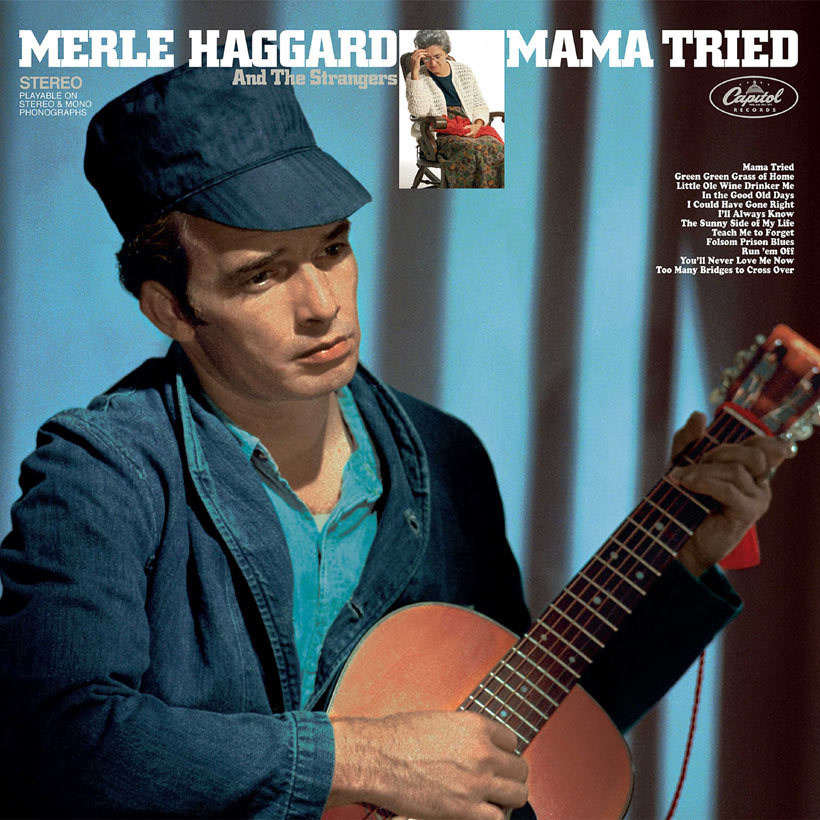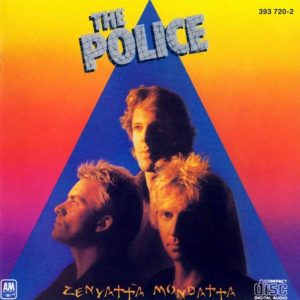The news that Merle Haggard’s 1969 live album Okie From Muskogee was among the 2017 arrivals in the Grammy Hall Of Fame gave the late, great country figurehead a brace of titles in that hallowed institution. Today we turn the spotlight on the album whose title song was recognised by the Hall Of Fame in 1999: his seventh studio LP, Mama Tried.
The album was released on October 3, 1968, when the man from Bakersfield was enjoying an extraordinary run of success, the year before “Okie From Muskogee” itself would establish him once and for all as country’s plain-speaking everyman. The typically gritty and realistic lead song from Mama Tried, Haggard’s own composition, had become his latest single with the Strangers a few months earlier, and spent the whole of September 1968 at the top of the country chart. It was his fourth bestselling 45 in a row, and even led to a movie in which it featured and in which Merle starred, Killers Three.
The Mama Tried album was produced by Haggard’s regular collaborator Ken Nelson, and, alongside the title track, featured 11 other numbers, three of them penned by the artist himself. He also covered Johnny Cash’s “Folsom Prison Blues,” a song with which he would have identified closely given his own time in jail, and gave Dolly Parton, then just 22, early recognition with a version of her song “In The Good Old Days.” There were also interpretations of songs by Leon Payne and Mel Tillis, and of Curly Putman’s celebrated “Green, Green Grass Of Home.”
Players on the album included guitarist Billy Mize, who shared Merle’s Bakersfield background and would be in his band for many years, and Tommy Collins, another of the guitarists literally instrumental in the development of the Bakersfield sound. The much-respected James Burton was also aboard, and there were backing vocals by Haggard’s wife Bonnie Owens, formerly married to fellow country star and Bakersfield luminary Buck Owens.
‘Between Lefty Frizell and early Johnny Cash’
Recognizing the rise of traditionally-conceived country music on the American music scene of the late 1960s, Rolling Stone’s contemporary review of the album noted that Haggard’s songs “romanticize the hardships and tragedies of America’s transient proletarian and his success is resultant of his inherent ability to relate to his audience a commonplace experience with precisely the right emotional pitch.”
Andy Wickham’s critique also observed that Merle’s sound fell “somewhere between Lefty Frizell and early Johnny Cash” and how his success with his core audience was due to his ability to address and identify with the suburban working class.
Listen to the best of Merle Haggard on Apple Music and Spotify.
Mama Tried didn’t make the US pop album chart, but climbed to No.4 in a 29-week run on the country album listing, and remains a key album in a unique career.
Buy or stream Mama Tried.




